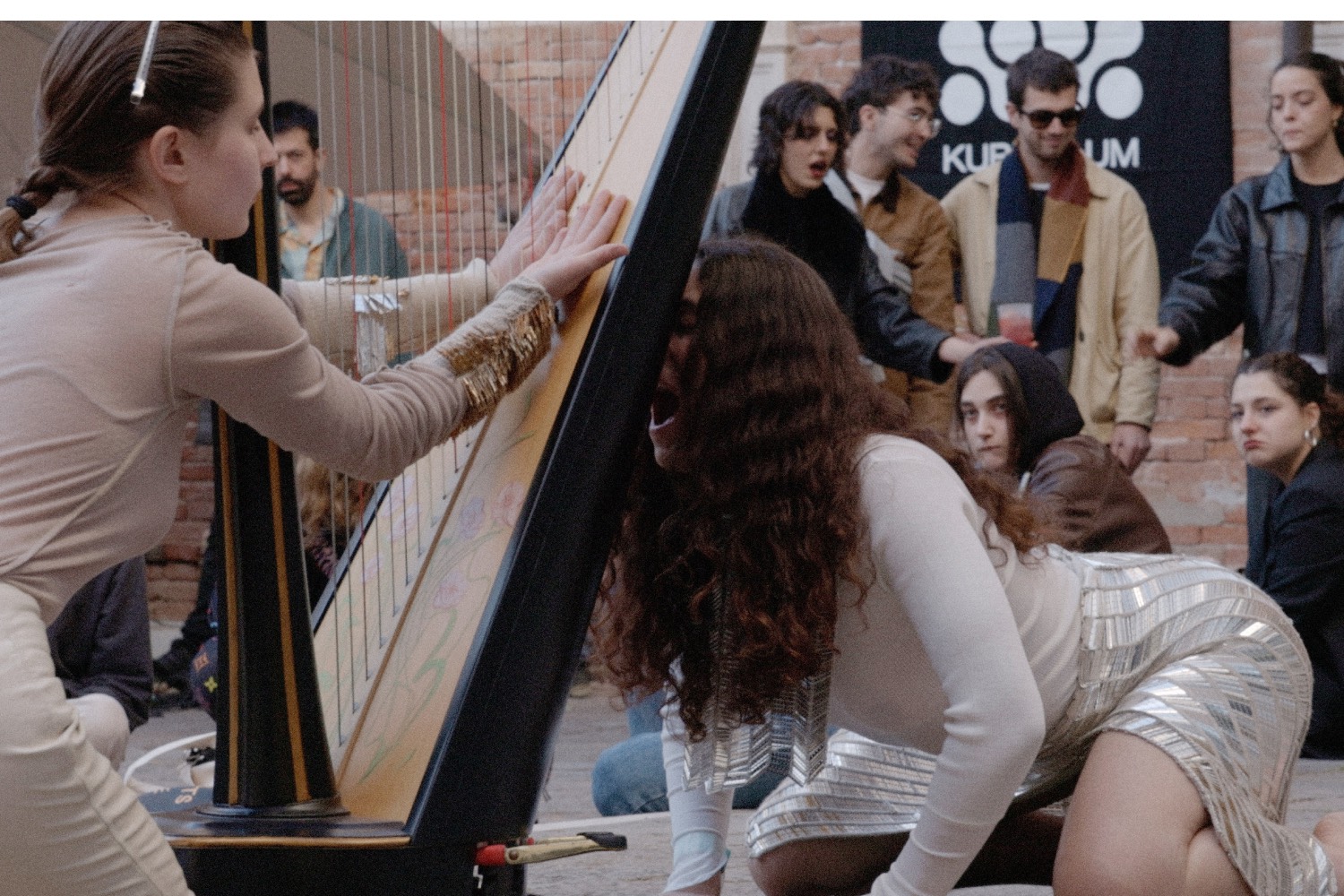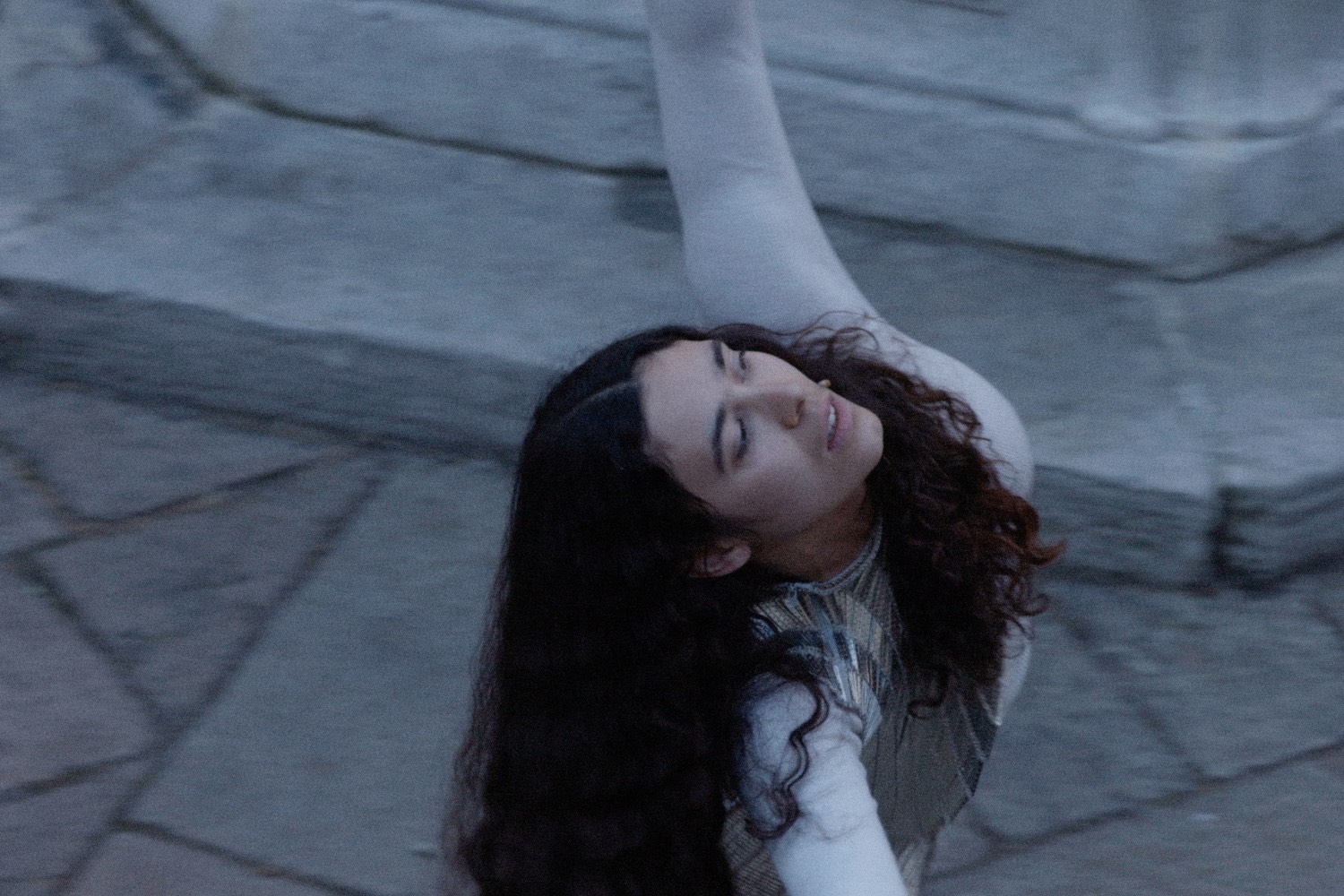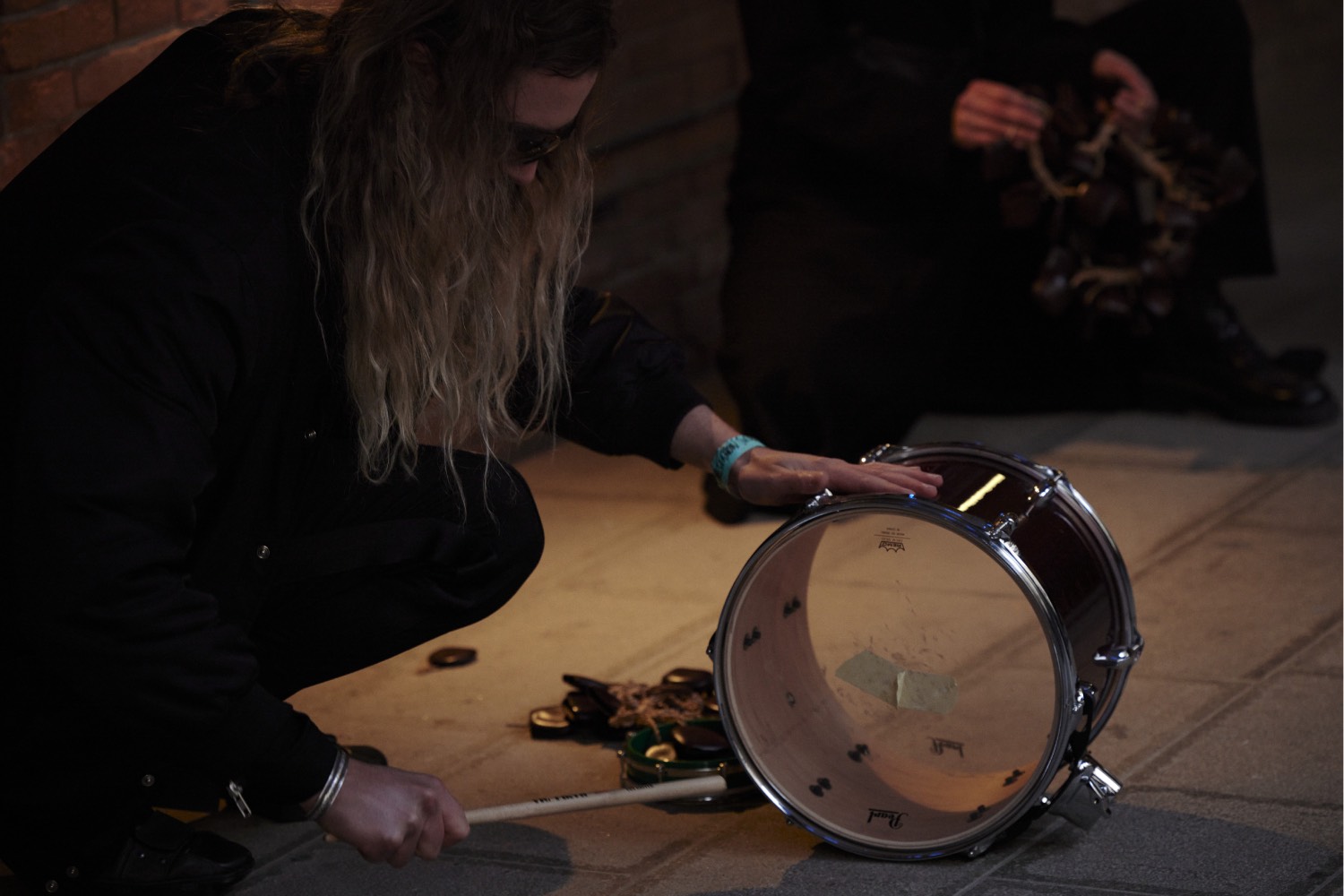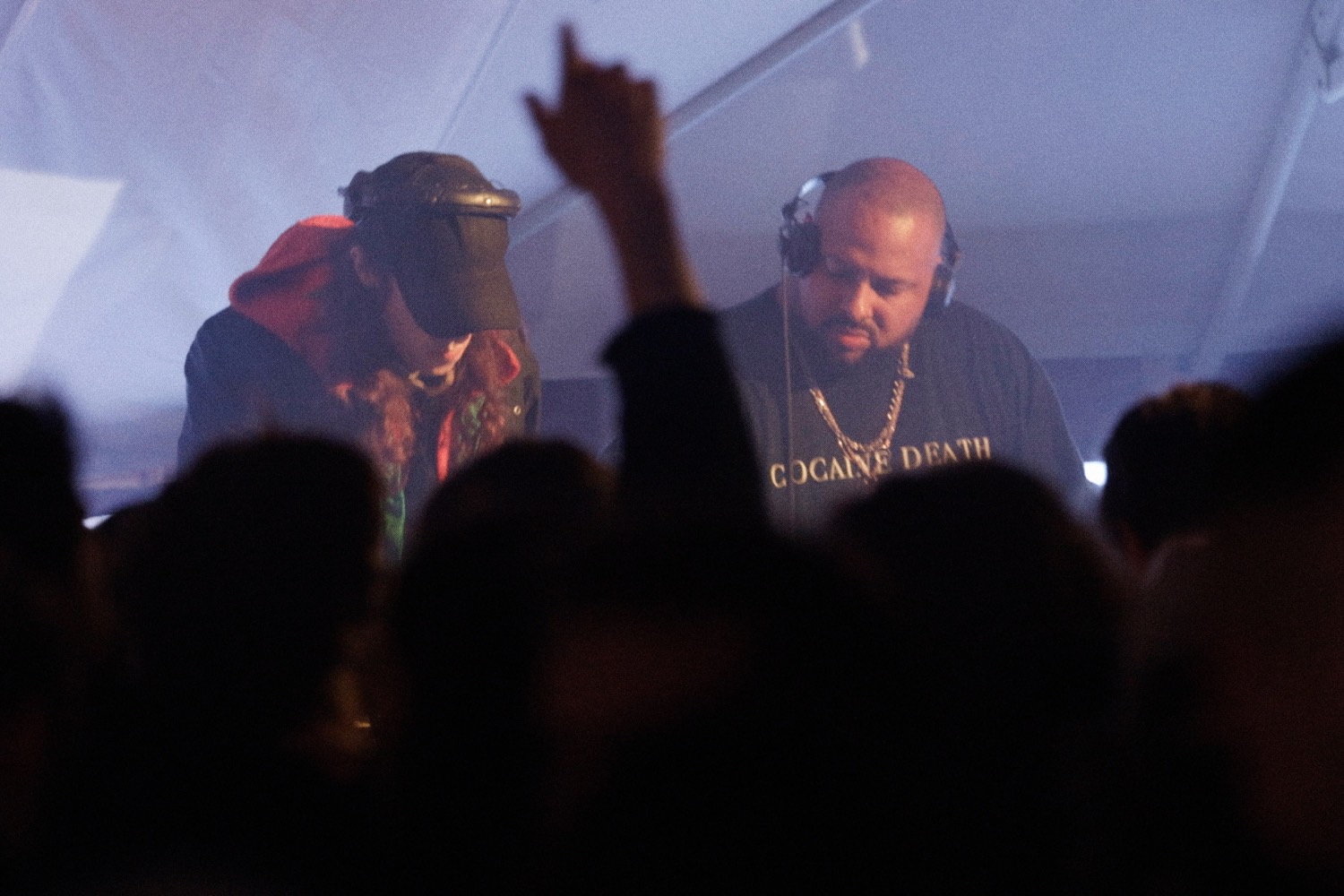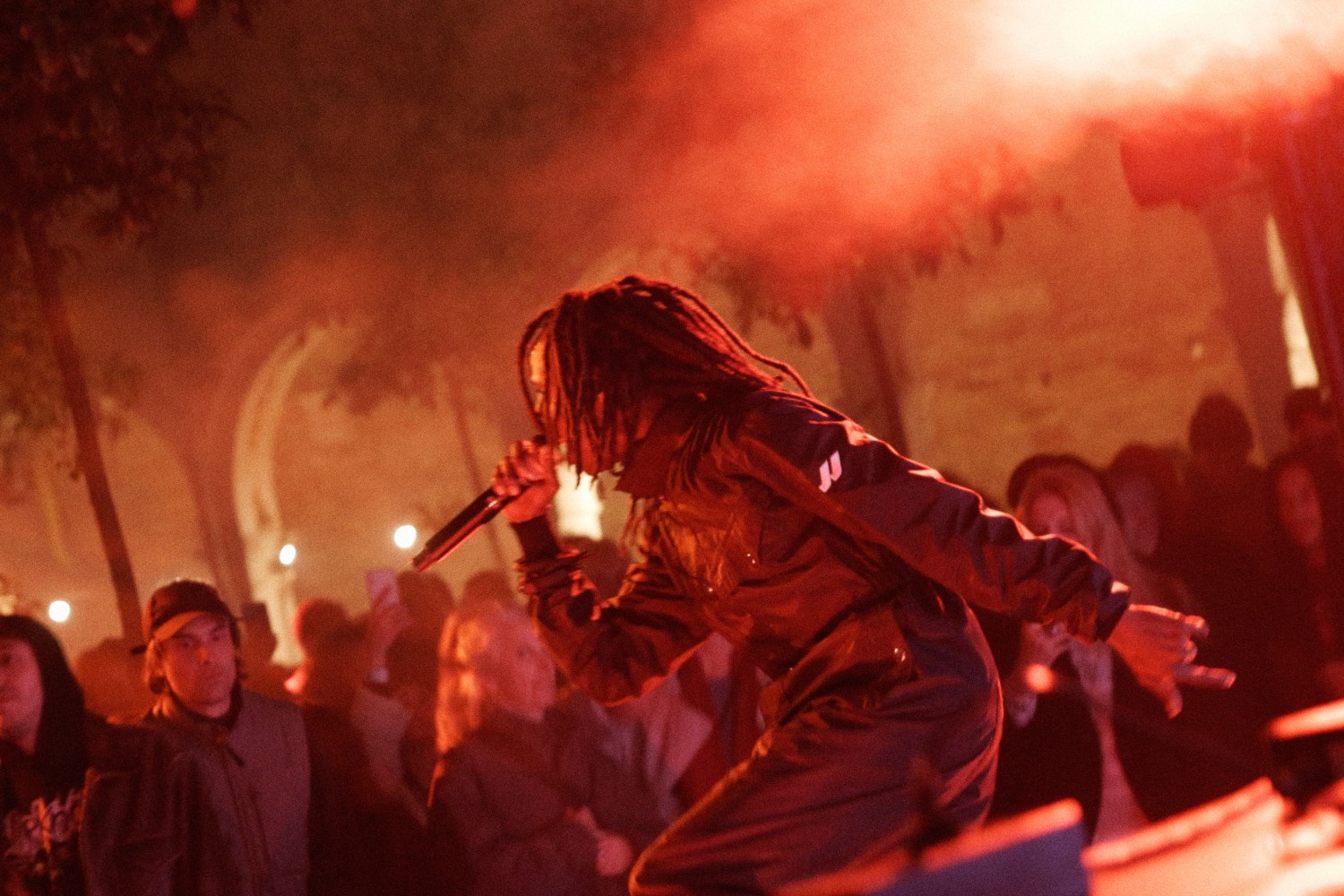Valentina Magaletti was supposed to take the stage together with Rome-based Italian electroacoustic duo known as I Canzonieri. However, they had to drop out and Valentina’s live set – a spellbinding hour of drum landscapes with ancestral rhythms over electronic bases – was moved first, opening the first of two nights of “WE TRAVEL TO KNOW OUR OWN GEOGRAPHY” at Combo in Venice.
“I was sorry I couldn’t play with Emiliano and Cosimo [Maggi e Damiano],but getting to Venice a day early was not possible for me,” she told me over the phone the day before her live show. Her Apulian accent is strong, but her English one is slowly taking over from her lively, friendly speech. “I had rehearsals with the Vanishing Twins. We don’t actually have to go on tour, but the singer just had a baby, and we signed a pretty big contract. So, we have deadlines.”
I Canzonieri – who, by the way, make up two-fifths of Salò – staged their grotesque show without Valentina’s percussive help. They still succeeded – with makeup and costumes somewhere between the corpse paint of black metal and the 1970s medieval-core (to which Salò also draw from) – in their intent to give experimental music back a touch of theatricality, of excess. It was melodic and dissonant at the same time.
The medieval element was is actually everywhere in the cloister that is now part of Combo’s hostel complex. The courtyard was once part of the Convento dei Crociferi, founded in the 12th century in Venice’s northernmost district, the Cannaregio sestiere. Right here, between three stone walls and a colonnade (on which it was comfortable to sit and have a spritz), Kuboraum Berlin turned its manifesto into an event in collaboration with Terraforma. It was one of the most interesting events in the teeming early landscape of the 60th Venice Biennale. Thanks to support for Plant-For-The-Planet’s Yucatán Restoration Project, the two days of live performances made it possible to plant 4322 trees on the Mexican peninsula.
Back to us. The reference to Salò h was intentional: the Rome-based collective, which describes itself as “a perfect blend of noise music, oneiric atmospheres, baroque costumes, was also Kuboraum Editions’ first release back in April 2020. The band’s inherently liquid and unpredictable nature, which through constant improvisation makes each show different from the next, aligns perfectly with the idea of “rejecting any definition of ‘genre’” at the heart of Kuboraum’s philosophy.
Even the very concept of stage was rejected throughout the evening. Belgian-Congolese artist Nkisi casted ghostly melodies over rarefied yet steeped in African tradition beats; and South African choreographer Tiran Willemse spun in circles, hovering in a trance-like state.
over the ancient well used by the Cruciferous monks.
The performance that perhaps most de-centralized the hegemony of the stage was sungaze by Studio Labour, a duo consisting of Farahnaz Hatam & Colin Hacklander. The entire live show was a continuous fragmentation of different moments in different spaces of the courtyard, self-activating and deactivating in close contact with the audience. A dozen percussionists moved through the crowd, shaking wooden crackles until they created a collective sound, which was then interrupted and resumed according to precise orders given by a drum. While other performers carry long printed sheets through the crowd, audience members had unique experiences based on where they were located in the space, and how they moved through it.
No wonder then, that both Studio Labour and Valentina Magaletti, along with many other names in avant-garde music, are all featured in Kuboraum Sound Residency, Kuboraum Editions’ latest release. A double vinyl record that “navigates through the spectrum of sound to demonstrate that very different artists, offering completely different genres, can organically cohabitate and enter a fluid dialogue with each other.”
Just like a visual artist, Valentina hasn’t only experimented with different genres, but also with materials. For instance, her Batterie Fragile was entirely made of ceramic and so brittle that it shattered more than once during various performances and recordings in 2022. For her, dismantling pop preconceptions about the instrument is first and foremost a political mission, even before than a sonic one. “I have been playing drums for many years. It has become almost political for me to show people that there are so many ways to conceive of this fantastic instrument. It has never been given the proper light, except in jazz.”
The toxic machismo that for too many years rock music attributed to the drummer figure is precisely what Valentina has been trying to eradicate from the collective imagination. A work like A Queer Anthology of Drums celebrates this vision, but a book like Basta Now moves from sounds to facts. Together with French writer Fanny Chiarello, Valentina started Permanent Draft, an all-female label that goes beyond music (Permanent Draft is also an album by the two aforementioned) but also embraces printed paper. “Even in experimental music, gender equality is a chimera.” Talking to festival organizers, I used to hear things like, “We would love to invite more women who make experimental music, but there aren’t any!”
Around the 20th-ish time Valentina heard that phrase uttered, she joined forces with Fanny, who had been collecting a database of 2800 female, non-binary, and trans artists in avant-garde music for over seven years, and Basta Now was born. “It is a journey that collects almost 3000 women. But it will never be exhaustive because the list is constantly expanding. Each edition will contain more names. At least, I will never have to hear again that there’s a lack of women in experimental music.”

